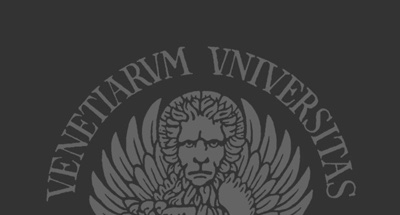Conclusion. (Of saint Severus). Since, however, all heretics have the habit of hiding their evil thinking in order to deceive the listeners and make them believe that they want the truth, resembling in this the Evil who is the source of all wickedness, and many times they make wrong use of the Divine Scriptures and the doctors of the Mysteries, to hide their impiety, and they make fraudulent apologies in order to escape what they are reproached for, like the Jews, who verbally demonstrate that they accept the Law and the Prophets, but in fact they deny them, and similarly the Ammonites who in words confess the true Son of God the Father, but in reality deny him, and Paul of Samosata and Nestorius and their followers, who being careful to mislead, they, in words, do not confess two Sons and two Christs, but one, but in reality, they are reproached for teaching two Sons and two Christs, then the Julianists, who in words confess that Christ suffered, but in reality demonstrate that they [follow] the opposite [doctrine], so also those who dare to utter substances and natures concerning the Holy and consubstantial Trinity, in order to deceive those who listen [to them] and to escape from an evident confutation, they say just in words one God and one Divinity and one substance, that is, nature, which they prove to confess to be nothing but a mere word in mere thought. [And] while they are blotting out to confess principally one God and one Divinity, one substance, that is, nature in three Holy hypostases of the Father, the Son, and the Holy Spirit, as the Divine Scriptures and the Holy Fathers teach, they are evidently caught boldly confessing gods, divinities, substances and natures concerning the Holy and consubstantial Trinity, as was shown through the blasphemies put down [above]. No one should believe them, because in the Scripture[s] those who confess substances, natures, gods and divinities concerning the Holy and consubstantial Trinity are anathematized, although they say [that] these [gods] are consubstantial, as also the Holy Theodosius refused, who [now] is among the saints. No one must believe heretics, because, as with lambskin, they cover and conceal their wickedness through beautiful words [taken] from the Holy Scriptures, and they do not think what they [really] say and do not say what they [really] think, so that no one gets bored by them, they, in fact had learned this from the Evil, their father.
ܕܩܕ̄ ܣܐܘܪܐ ܡܛܠ ܕܝܢ ܕܥܝܕܐ ܐܝܬ ܠܟܠܗܘܢ ܗܪ̈ܛܝܩܘ܆ ܕܬܪܥܝܬܗܘܢ ܒܝ̣ܫܬܐ ܢܚ̇ܦܘܢ܆ ܐܝܟ ܕܢ݀ܛܥܘܢ ܒܫܡ̈ܘܥܐ܆ ܘܢܣ̣ܒܪܘܢ ܐܢܘܢ ܕܫܪܪܐ ܡܬ̇ܪܥܝܢ ܟܕ ܒܗܕܐ ܒܐ̇ܟܠ ܩܪܨܐ ܗ̇ܘ ܕܐܝܬܘܗܝ ܡܒܘܥܐ ܕܟܠܗ̇ ܒܝ̣ܫܘܬܐ ܡ̇ܕܡܝܢ܆ ܘܟܡܐ ܙܒ̈ܢܝܢ ܒܡ̈ܠܐ ܕܟ̈ܬܒܐ ܐܠܗ̈ܝܐ ܘܕܡ̈ܠܦܝ ܐܪ̈ܙܐ: ܡܨܛܢܥܝܢ ܕܠܪܘܫܥܗܘܢ ܢ̇ܛܫܘܢ: ܘܡܦܩ ܒܪ̈ܘܚܐ ܙܐ̈ܦܢܐ ܥ̇ܒܕܝܢ ܕܢܥ̣ܪܩܘܢ: ܡܢ ܗܠܝܢ ܡܬܟ̇ܣܝܢ ܐܝܟܢܐ ܕܐܦ ܝܗܘ̈ܕܝܐ. ܕܒܡܠܬܐ ܡ̣̇ܢ ܡܚ̇ܘܝܢ ܕܡܩ̇ܒܠܝܢ ܠܢܡܘܣܐ ܘܠܢܒ̈ܝܐ. ܒܣܘܥܪܢܐ ܕܝܢ ܒܗܠܝܢ ܟ̇ܦܪܝܢ ܒܗ̇ ܒܕܡܘܬܐ ܘܐܪ̈ܝܡܘܢܝܛܐ ܕܒܡܠܬܐ̇ ܡ̣̇ܢ ܡ̇ܘܕܝܢ ܒܒܪܐ ܫܪܝܪܐ ܕܐܠܗܐ ܘܐܒܐ. ܒܣܘܥܪܢܐ ܕܝܢ ܒܗܢܐ ܟ̇ܦܪܝܢ. ܘܦܘܠܐ ܫܡܝܫܛܝܐ ܘܢܣܛܘܪܝܣ ܘܒ̈ܢܝ ܪܥܝܢܗܘܢ܆ ܟܕ ܝܨܝܦܝܢ ܕܢ̇ܛܥܘܢ܆ ܒܡܠܬܐ ܡ̇ܢ ܐܡܪܝ̣ܢ ܕܠܐ ܡܘܕܝܢ ܬܪ̈ܝܢ ܒܢ̈ܝܐ ܘܬܪ̈ܝܢ ܡܫܝ̈ܚܐ̇ ܐܠܐ̣ ܚܕ܆ ܒܗ ܕܝܢ ܒ݀ܥܒܕܐ ܡܬܟܣܣܝܢ܆ ܕܬܪ̈ܝܢ ܒܢ̈ܝܐ ܘܬܪ̈ܝܢ ܡܫܝ̈ܚܐ ܡ̇ܠܦܝܢ. ܘܬܘܒ ܝܘܠܝܢ̈ܣܛܐ܆ ܒܡܠܬܐ ܡ̣̇ܢ ܡ̇ܘܕܝܢ ܕܚܫ ܡܫܝܚܐ. ܒܣܘܥܪܢܐ ܕܝܢ ܡܬܚܘܝ̣ܢ ܕܕܠܩܘܒܠܐ ܐܝ̇ܬܝܢ. ܗܟܢܐ ܘܗ̇ܢܘܢ ܕܡܡܪܚܝܢ ܕܢܐܡܪܘܢ ܐܘ̈ܣܝܣ ܘܟܝ̈ܢܐ ܠܬܠܝܬܝܘܬܐ ܩܕܝܫܬܐ ܘܫ̣ܘܝܬ ܒܐܘܣܝܐ܆ ܡܛܠ ܕܢ̇ܛܥܘܢ ܒܗܠܝܢ ܕܫܡ̇ܥܝܢ: ܘܕܢܥܪܩܘܢ ܡܢ ܡܟܣܢܘܬܐ ܓܠܝܬܐ܆ ܒܡܠܬܐ ܡ̇ܢ ܚܕ ܐܠܗܐ ܐܡܪܝܢ ܘܚܕܐ ܐܠܗܘܬܐ. ܘܚܕܐ ܐܘܣܝܐ ܐܘ ܟܝܬ ܟܝܢܐ ܕܡ̇ܚܘܝܢ ܕܡ̇ܘܕܝܢ܆ ܐܘ ܠܐ ܡܕܡ ܐܡܪܝܢ ܕܐܝܬܘܗܝ. ܐܘ ܒܡܠܬܐ ܫܚܝܡܬܐ ܡܘܕܝܢ ܠܗ ܥܕܡܐ ܠܡܚܫܒܬܐ ܫܚܝܡܬܐ ܟܕ ܥ̇ܛܝܢ ܗ̇ܝ ܕܡܪܢܐܝܬ ܢܘܕܘܢ ܚܕ ܐܠܗܐ ܘܚܕܐ ܐܠܗܘܬܐ: ܘܚܕܐ ܐܘܣܝܐ ܐܘܟܝܬ ܟܝܢܐ ܕܒܬܠܬܐ ܩܢܘ̈ܡܐ ܩܕ̈ܝܫܐ ܕܐܒܐ ܘܕܒܪܐ ܘܕܪܘܚܐ ܩܕܝܫܐ܇ ܐܝܟܢܐ ܕܟ̈ܬܒܐ ܐܠܗ̈ܝܐ ܡ̈ܠܦܝܢ ܘܐܒܗ̈ܬܐ ܩܕ̈ܝܫܐ܆ ܓܠܝܐܝܬ ܡܬܬܚܕܝܢ. ܕܐܠܗ̈ܐ ܘܐܠܗܘ̈ܬܐ ܘܐܘ̈ܣܝܣ ܘܟ̈ܝܢܐ ܡܡܪܚܝܢ ܕܢܘܕܘܢ܇ ܠܬܠܝܬܝܘܬܐ ܩܕܝܫܬܐ ܘܫܘ̣ܝܬ ܒܐܘܣܝܐ. ܐܝܟܢܐ ܕܐܬ̣ܚܘܝܬ ܒܓܘܕ̈ܦܐ ܗܠܝܢ ܕܣܝ̣ܡܝܢ. ܘܠܐ ܙܕܩ ܠܐܢܫ ܕܣܟ ܢܫܪ ܐܢܘܢ܇ ܥܕܡܐ ܕܒܟܬܒܐ ܡܚܪܡܝܢ ܠܗ̇ܢܘܢ ܕܡܘܕܝܢ ܐܘ̈ܣܝܣ ܘܟܝ̈ܢܐ ܘܐܠܗ̈ܐ ܘܐܠܗܘ̈ܬܐ܇ ܠܬܠܝܬܝܘܬܐ ܩܕܝܫܬܐ ܘܫ̣ܘܝܬ ܒܐܘܣܝܐ: ܐܦܢ ܕܫܘ̈ܝܢ ܒܐܘܣܝܐ ܠܗܠܝܢ ܢܐܡܪ̈ܘܢ. ܐܝܟܢܐ ܕܐܦ ܗ̇ܘ ܕܒܝܬ ܩܕ̈ܝܫܐ ܚܣܝܐ ܬܐܕܘܣܝܣ ܐܣ̣ܠܝ܀ ܠܗܪ̈ܛܝܩܘ ܓܝܪ ܐܝܟ ܕܐ݀ܬܝܐ܆ ܠܐ ܐܢܫ ܙܕܩ ܕܢܫܪ܆ ܡܛܠ ܕܐܝܟ ܕܒܡܫܟܐ ܕܥܪܒܐ ܠܒܝ̣ܫܘܬܗܘܢ ܒܡ̈ܠܐ ܫܦܝܪ̈ܬܐ ܘܕܟ̈ܬܒܐ ܩܕܝ̈ܫܐ ܡܬ݁ܦܪܣܝܢ ܕܚ̇ܝܦܘܢ. ܘܠܐ ܗܠܝܢ ܕܡܡܠܠܝܢ ܡܬ݁ܪܥܝܢ܆ ܘܠܐ ܗܠܝܢ ܕܡܬ݁ܪܥܝܢ ܡܡܠܠܝܢ. ܡܛܠ ܕܠܐ ܟܠܢܫ ܢܓܥ̣ܝܢ ܡܢܗܘܢ. ܟܕ ܝܠܦܘܗ̇ ܠܗܕܐ܆ ܡܢ ܐܟܠ ܩܪܨܐ ܐܒܘܗܘܢ܀
